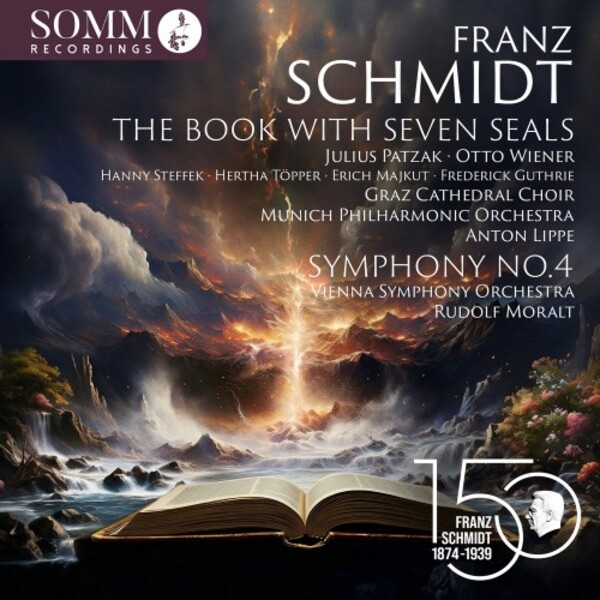
F Schmidt - The Book with Seven Seals, Symphony no.4
£21.80 £18.53
save £3.27 (15%)
special offer ending 27/05/2024
In stock - available for despatch within 1 working day
Despatch Information
This despatch estimate is based on information from both our own stock and the UK supplier's stock.
If ordering multiple items, we will aim to send everything together so the longest despatch estimate will apply to the complete order.
If you would rather receive certain items more quickly, please place them on a separate order.
If any unexpected delays occur, we will keep you informed of progress via email and not allow other items on the order to be held up.
If you would prefer to receive everything together regardless of any delay, please let us know via email.
Pre-orders will be despatched as close as possible to the release date.
Label: Somm
Cat No: ARIADNE50262
Format: CD
Number of Discs: 2
Release Date: 19th April 2024
Contents
Artists
Julius Patzak (tenor)Otto Wiener (bass)
Hanny Steffek (soprano)
Hertha Topper (alto)
Erich Majkut (tenor)
Frederick Guthrie (bass)
Franz Illenberger (organ)
Graz Cathedral Choir
Munich Philharmonic Orchestra
Vienna Symphony Orchestra
Conductors
Anton LippeRudolf Moralt
Works
Das Buch mit sieben Siegeln (The Book of Seven Seals)Symphony no.4 in C major
Artists
Julius Patzak (tenor)Otto Wiener (bass)
Hanny Steffek (soprano)
Hertha Topper (alto)
Erich Majkut (tenor)
Frederick Guthrie (bass)
Franz Illenberger (organ)
Graz Cathedral Choir
Munich Philharmonic Orchestra
Vienna Symphony Orchestra
Conductors
Anton LippeRudolf Moralt
About
Born in Pressburg (Bratislava) in 1874, Schmidt’s teachers (piano) included his mother (herself a student of Liszt), Rudolf Mader, Ludwig Burger and Theodor Leschetizky; (cello) Karl Udel and Ferdinand Hellmesberger; and (theory) Felicián Moczik and Robert Fuchs. He was, for a time, principal cellist in the Vienna Philharmonic under Mahler. While his symphonic output is clearly in the structural mould of Schubert, Brahms and Bruckner, his harmonic language, while showing influences of Strauss, Mahler and early Schoenberg, is clearly his own.
A near fatal heart attack in the years following the success of his Fourth Symphony prompted the composer to put his efforts into a major religious work. His setting of eight chapters of the last book of the New Testament in Martin Luther’s German became The Book with Seven Seals (From the Revelation of St John the Divine), not through-composed but constructed of clearly defined sections in the great 19th-century oratorio tradition.
The success of this summum opus and his stature in Austria drew the attention of the Nazis, who commissioned Schmidt to write a cantata on partisan texts (which he abandoned, only for it to be completed by a student and nevertheless performed under Schmidt’s name). With the fading of this unfortunate association a growing number of prominent conductors (the Järvis, Welser-Möst, Luisi, Bychkov) have begun to revive performances of his music in our time.
Lani Spahr’s previous SOMM releases include the lauded four-volume sets Vaughan Williams Live (ARIADNE 5016, 5018-20) and Elgar Remastered (SOMMCD 261-4), as well as Elgar from America, Volume 3 (Ariadne 5015-2), which garnered a Gramophone Editor’s Choice for “superb audio restorations [bringing] performances fully to life”.
Error on this page? Let us know here
Need more information on this product? Click here